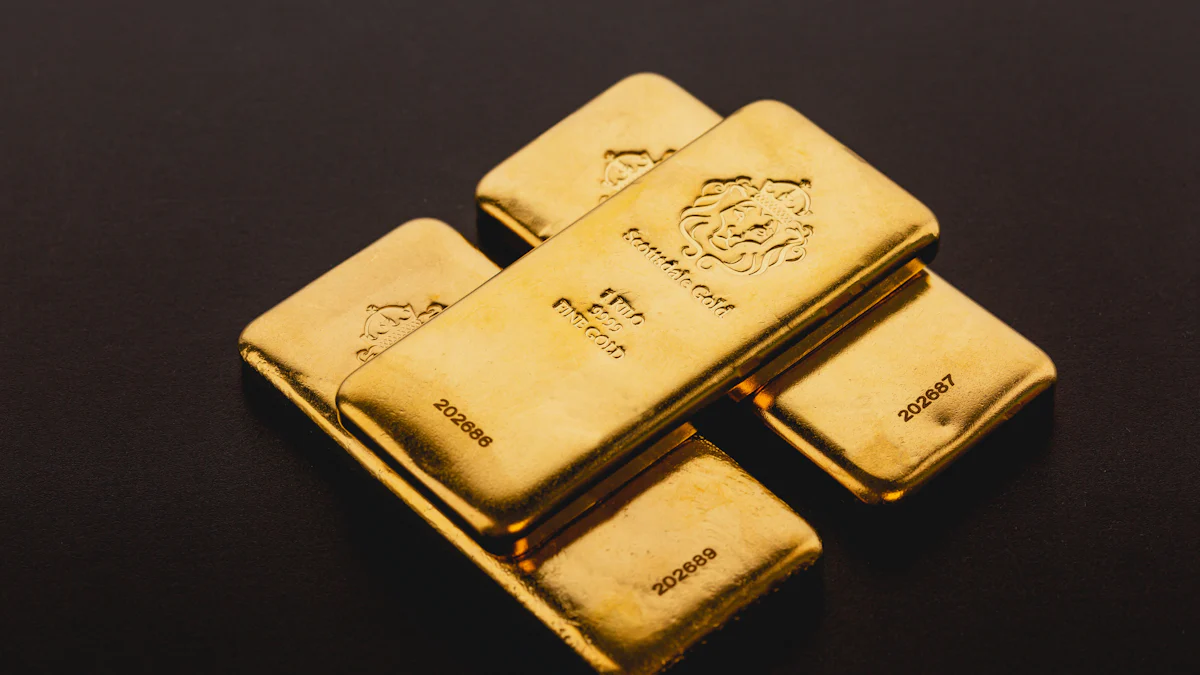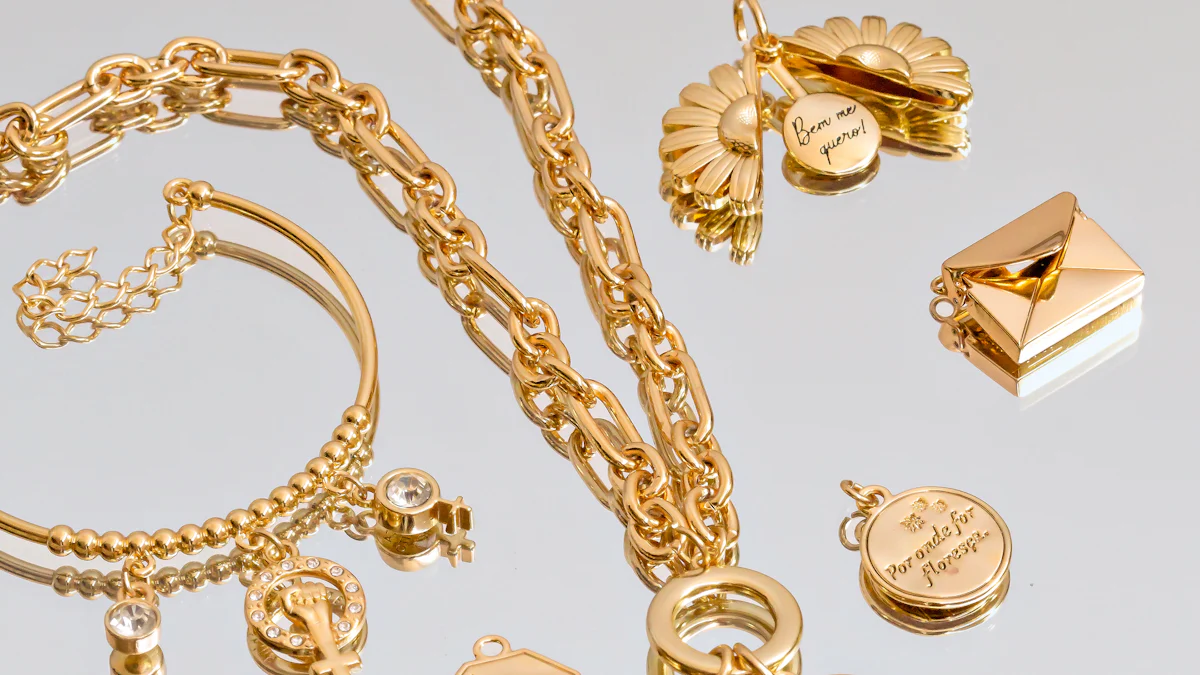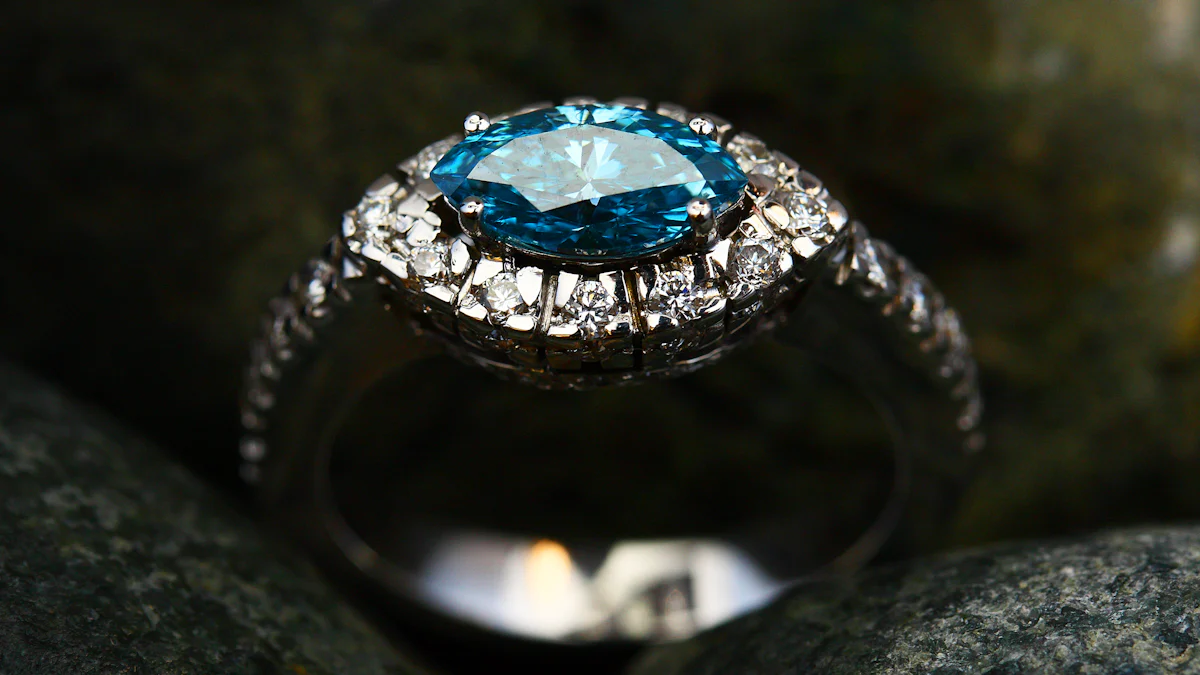Karat vs Carat: Jewelry's Key Differences

Many people confuse "karat" and "carat" because both sound alike. These terms hold different meanings in the jewelry world. Understanding "karat vs carat" helps you make informed decisions when buying jewelry. Karat measures gold purity, while carat measures gemstone weight. Knowing these differences ensures you choose the right pieces for your collection.
Understanding Karat

Definition and Measurement
What is Karat?
Karat measures gold purity. Jewelers use karat to describe how much pure gold exists in an alloy. Pure gold contains 24 parts gold. Therefore, 24 karat gold is pure gold. Lower karat numbers indicate less gold content. For example, 18 karat gold contains 18 parts gold and 6 parts other metals. Understanding karat vs carat helps you know the value of gold jewelry.
Measurement Units and Abbreviations
Jewelers use specific abbreviations for karat. The common abbreviations are 'k' or 'kt'. These abbreviations appear on gold jewelry to show purity levels. You will often see markings like 18k or 24kt. These markings help you identify the gold content quickly. Knowing these abbreviations aids in understanding karat vs carat differences.
Examples of Karat in Gold
Explanation of 18 Karat Gold
18 karat gold contains 75% pure gold. Jewelers mix 18 parts gold with 6 parts other metals. The additional metals add strength and durability. This makes 18 karat gold suitable for everyday wear. Many people prefer 18 karat gold for its balance of purity and strength. Recognizing 18 karat gold helps in understanding karat vs carat.
Comparison with 24 Karat Gold
24 karat gold is pure gold. It contains no other metals. Pure gold is soft and malleable. This softness makes 24 karat gold less durable. Jewelers often use 24 karat gold for special pieces. These pieces are not for daily wear. Comparing 18 karat and 24 karat gold highlights the importance of understanding karat vs carat.
Understanding Carat

Definition and Measurement
What is Carat?
Carat measures the weight of gemstones. Jewelers use carat to determine how much a gemstone weighs. One carat equals 200 milligrams. Understanding carat helps you assess the weight of diamonds and other gems.
Measurement Units and Abbreviations
Jewelers use specific abbreviations for carat. The common abbreviations are 'c' or 'ct'. These abbreviations appear on gemstone certificates. You will often see markings like 1ct or 0.5ct. These markings help you identify the weight of gemstones quickly. Knowing these abbreviations aids in understanding carat differences.
Examples of Carat in Gemstones
Explanation of a 1 Carat Diamond
A 1 carat diamond weighs 200 milligrams. Jewelers often describe diamonds by their carat weight. A 1 carat diamond can vary in size based on its cut. The cut affects how light reflects through the diamond. Recognizing a 1 carat diamond helps in understanding gemstone weights.
Comparison with Other Carat Weights
Different carat weights affect a gemstone's appearance. A 0.5 carat diamond weighs less than a 1 carat diamond. Larger carat weights often mean higher prices. Jewelers use carat weight to guide pricing and design choices. Comparing different carat weights highlights the importance of understanding gemstone measurements.
Key Differences Between Karat and Carat
Summary of Definitions
Recap of Karat
Karat measures the purity of gold. Jewelers use karat to show how much pure gold is in an alloy. Pure gold is 24 karats. Lower numbers mean less gold content.
Recap of Carat
Carat measures the weight of gemstones. One carat equals 200 milligrams. Carat does not show size or value, only weight.
Practical Tips for Consumers
Tips for Remembering the Differences
Think of karat with a "K" for "karat" and "K" for "karat gold." Karat relates to gold purity. Remember carat with a "C" for "carat" and "C" for "carat weight." Carat relates to gemstone weight.
Advice for Jewelry Purchases
Check the karat number for gold jewelry. Higher karat means more gold purity. Look at the carat weight for gemstones. Larger carat weights often cost more. Always verify markings on jewelry before buying. 18K Gold
Understanding the differences between karat and carat enhances your jewelry knowledge. Karat measures gold purity, while carat measures gemstone weight. Remember these distinctions when shopping for jewelry. Look for karat markings on gold pieces to assess purity. Check carat weights on gemstones to determine size and cost. Use these insights to make informed jewelry purchases. Recognize the value of knowing karat and carat differences. Your awareness ensures you select the best jewelry for your collection.
See Also
Decoding Diamond Ring Price Determinants
Distinguishing Promise and Engagement Rings
In-Depth Contrast: Tungsten vs Traditional Diamond Rings

